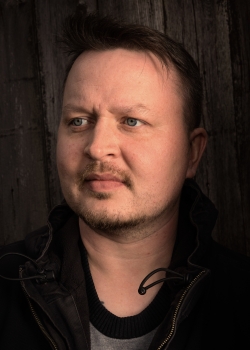James Year
Photojournalist @ Syracuse University / Based in Syracuse
James Year is originally from a small, working-class family farm in Northwest Iowa. Due to a lack of other viable options, he enlisted in the USAF to get an education and eventually graduated from the University of Iowa’s Sociology...
read on
Focus:
Photojournalist, Politics, Environment, Technology, Documentary, Portraiture, Culture, Arts & Culture, Assignments, Aerial, Political Journalism, Arts Journalism, Community, Wedding, Wedding Photographer, US Politics, Portrait Photography, Social Justice, Industrial
About
Available in: Syracuse
Focused on:
Photojournalist, Politics, Environment, Technology, Documentary, Portraiture, Culture, Arts & Culture, Assignments, Aerial, Political Journalism, Arts Journalism, Community, Wedding, Wedding Photographer, US Politics, Portrait Photography, Social Justice, Industrial
Coverage Regions:
USA & Canada
Years of experience: 6 to 10
HEFAT certification? no
James Year is originally from a small, working-class family farm in Northwest Iowa. Due to a lack of other viable options, he enlisted in the USAF to get an education and eventually graduated from the University of Iowa’s Sociology Program. He is currently finishing a master's degree in Multimedia, Photography, and Design at Syracuse University.
Recently, he has been assisting academic research. In the summer of 2022, he provided visuals for a joint study between U.C. Davis and the University of Pennsylvania, which was focused on labor issues related to the driver shortage. He is currently assisting Professor Steve Viscelli, of the University of Pennsylvania, on research into the labor and technological processes of Amazon’s logistical network. In the last few years, he has been focusing almost exclusively on longform documentary projects that intersect on labor, technology, and the environment. That interest was born of the realization that the advances of automation and unmitigated market consolidation have had detrimental effects on his working life and rural hometown community. These issues have been largely unspoken in the public discourse but are going to intensify throughout the country, due to the rapid implementation of A.I. which is expected to exacerbate current social and economic inequalities.
The scale and rate of these forecasted changes risk breaking the foundations of our economy. We really need to start talking about solutions.
Recently, he has been assisting academic research. In the summer of 2022, he provided visuals for a joint study between U.C. Davis and the University of Pennsylvania, which was focused on labor issues related to the driver shortage. He is currently assisting Professor Steve Viscelli, of the University of Pennsylvania, on research into the labor and technological processes of Amazon’s logistical network. In the last few years, he has been focusing almost exclusively on longform documentary projects that intersect on labor, technology, and the environment. That interest was born of the realization that the advances of automation and unmitigated market consolidation have had detrimental effects on his working life and rural hometown community. These issues have been largely unspoken in the public discourse but are going to intensify throughout the country, due to the rapid implementation of A.I. which is expected to exacerbate current social and economic inequalities.
The scale and rate of these forecasted changes risk breaking the foundations of our economy. We really need to start talking about solutions.

